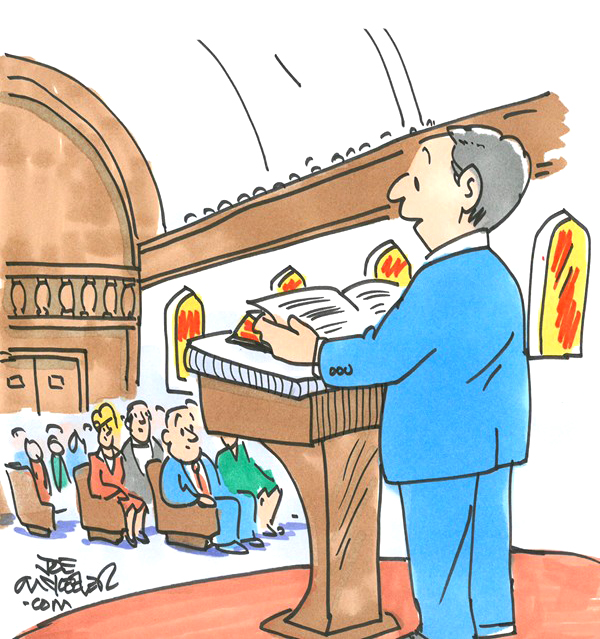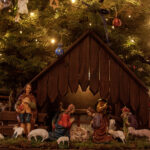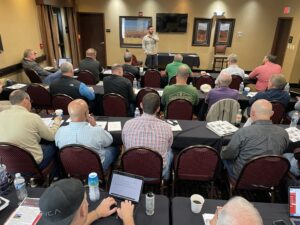
 TIGERVILLE, S.C. (BP) — Christians have been debating the finer points of eschatology, or the “end times,” since at least the second century. Are God’s Old Testament promises to Israel about the land fulfilled literally or figuratively or some combination of the two? What is the nature of the millennium and when does it occur in God’s divine timeline? Is the rapture an aspect of the Second Coming or is it a separate event? How much continuity exists between the present created order and the new heavens and new earth?
TIGERVILLE, S.C. (BP) — Christians have been debating the finer points of eschatology, or the “end times,” since at least the second century. Are God’s Old Testament promises to Israel about the land fulfilled literally or figuratively or some combination of the two? What is the nature of the millennium and when does it occur in God’s divine timeline? Is the rapture an aspect of the Second Coming or is it a separate event? How much continuity exists between the present created order and the new heavens and new earth?
Like other Christians, Southern Baptists disagree among ourselves about these questions and others. While we are committed to the belief that Scripture is inspired, authoritative, inerrant and sufficient, we also recognize that some of these ancient debates will not be fully settled until the next life. We will all be set straight by then!
Despite honest disagreements among Southern Baptists, we do enjoy a consensus on the most important aspects of eschatology. The Baptist Faith and Message (2000) summarizes our commonly held beliefs about the end times:
God, in His own time and in His own way, will bring the world to its appropriate end. According to His promise, Jesus Christ will return personally and visibly in glory to the earth; the dead will be raised; and Christ will judge all men in righteousness. The unrighteous will be consigned to Hell, the place of everlasting punishment. The righteous in their resurrected and glorified bodies will receive their reward and will dwell forever in Heaven with the Lord.
God is in control. Jesus is coming back. Every human being will be judged. Heaven and hell are real, and their respective blessings and punishments are eternal. These wonderful truths ought to dramatically affect the way we live. Rather than going about our lives as if this present age is all that matters, we ought to live in light of the Second Coming. According to Scripture, this entails at least two priorities.
First, living in light of the Second Coming means pursuing holiness. Peter ties our pursuit of holiness to God’s promises and the return of Jesus Christ:
13 Therefore, with your minds ready for action, be sober-minded and set your hope completely on the grace to be brought to you at the revelation of Jesus Christ. 14 As obedient children, do not be conformed to the desires of your former ignorance. 15 But as the one who called you is holy, you also are to be holy in all your conduct; 16 for it is written, Be holy, because I am holy (1 Peter 1:13-16).
God has called us to be holy. This holy calling is rooted in God’s own perfectly holy character. As His spiritual children, our lives have been transformed and our priorities are different from when we were lost. Paul says it this way: “Therefore, if anyone is in Christ, he is a new creation; the old has passed away, and see, the new has come!” (2 Corinthians 5:17).
Living in light of the Second Coming also means being urgent in evangelism and missions. In Matthew 24, Jesus teaches His disciples about some key elements of the end times. In verse 14, He says “This good news of the kingdom will be proclaimed in all the world as a testimony to all nations, and then the end will come.” A bit later, in verses 30-31, Jesus makes clear that the end that will come includes the coming of the Son of Man, or His Second Coming.
Jesus promises that He will return, but until then we spread His fame among the nations. In these verses, He promises the success of the Great Commission that He commands later on in Matthew 28:18-20. We take the Gospel to the whole world. After that, Jesus returns. He isn’t suggesting that we can hasten the timing of His return based upon our evangelistic efforts, but rather that we should be urgent in proclaiming the Good News to all people because He will return one day to finish His saving work.
When we think about the return of Christ, our first instincts shouldn’t be to break out the prophecy charts or start a debate in our small group. Instead, our response should be to pursue holiness and share the Good News with those who do not yet believe. All Christians are called both to own God’s call to holiness and to obey Christ’s command to spread the Gospel here, there, and everywhere. This is what it means to live in light of the Second Coming.
Come quickly, Lord Jesus. And may you find us faithful on that day.





















